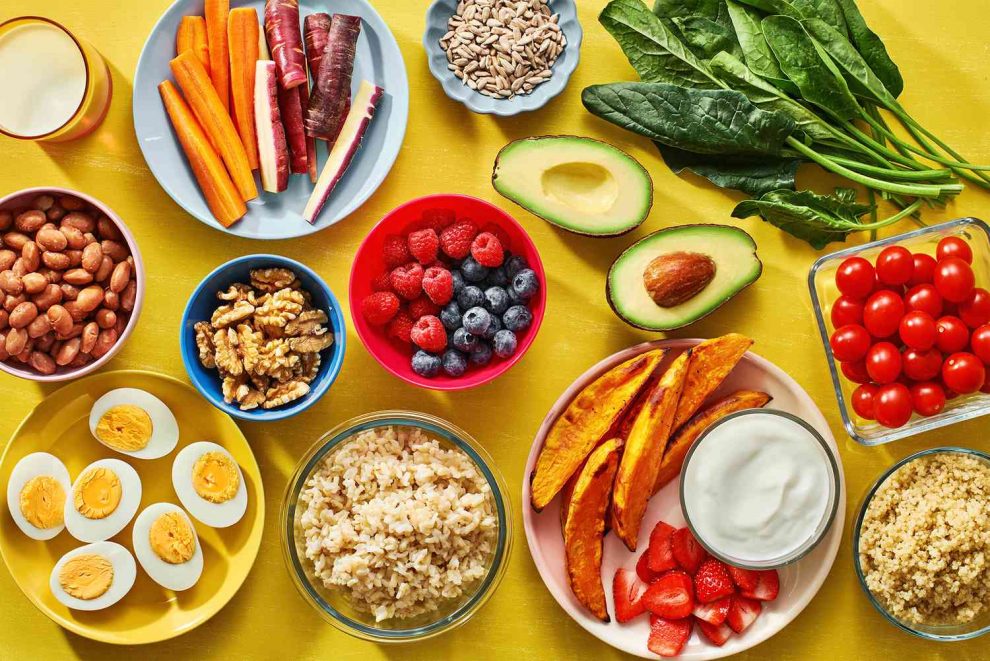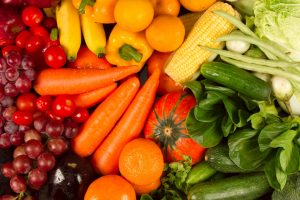In recent years, the term “superfood” has gained immense popularity, often used to describe foods that are nutritionally dense and beneficial to health. While there is no scientific definition for superfoods, they are typically rich in antioxidants, vitamins, minerals, and other nutrients that can help improve overall well-being and prevent various diseases. This article delves into the nutritional benefits of some of the most commonly recognized superfoods, explaining why they are considered exceptional for our health.
Understanding Superfoods
Superfoods are natural, whole foods that are packed with a higher concentration of nutrients compared to regular foods. These nutrients can include vitamins, minerals, antioxidants, fiber, and healthy fats, all of which contribute to various health benefits. By incorporating superfoods into your diet, you can enhance your nutritional intake and support your body’s functions more effectively.
Common Superfoods and Their Benefits
1. Blueberries
Blueberries are often touted as one of the top superfoods due to their high levels of antioxidants, particularly anthocyanins, which give them their deep blue color. These antioxidants help protect the body from oxidative stress and inflammation, reducing the risk of chronic diseases such as heart disease and cancer. Blueberries are also rich in vitamin C, vitamin K, and fiber, promoting overall health and aiding in digestion.
2. Kale
Kale is a leafy green vegetable loaded with vitamins A, C, and K, as well as calcium, potassium, and fiber. Its high antioxidant content helps fight inflammation and supports detoxification processes in the body. The fiber in kale aids in digestion and promotes a healthy gut, while its calcium content supports bone health.
3. Salmon
Salmon is an excellent source of omega-3 fatty acids, which are essential for heart and brain health. Omega-3s help reduce inflammation, lower the risk of heart disease, and support cognitive function. Additionally, salmon provides high-quality protein, B vitamins, and selenium, contributing to muscle health, energy production, and a robust immune system.
4. Chia Seeds
Chia seeds are tiny powerhouses of nutrition, rich in omega-3 fatty acids, fiber, protein, and various micronutrients such as calcium, magnesium, and phosphorus. These seeds can absorb many times their weight in water, forming a gel-like substance that aids in digestion and helps maintain hydration. The high fiber content in chia seeds also supports healthy blood sugar levels and promotes a feeling of fullness.
5. Avocado
Avocado is a unique fruit that is high in healthy monounsaturated fats, which are beneficial for heart health. It is also packed with vitamins C, E, K, and several B vitamins, along with potassium and fiber. The healthy fats in avocados help absorb fat-soluble vitamins and support skin health, while the potassium helps regulate blood pressure.
6. Quinoa
Quinoa is a gluten-free grain that is considered a complete protein, meaning it contains all nine essential amino acids. It is also high in fiber, iron, magnesium, and manganese. Quinoa supports muscle repair and growth, aids in digestion, and helps maintain healthy blood sugar levels. Its versatility makes it a great addition to various dishes, from salads to main courses.
7. Sweet Potatoes
Sweet potatoes are rich in beta-carotene, which the body converts into vitamin A, essential for vision, immune function, and skin health. They also contain fiber, potassium, and vitamins C and B6. The high fiber content promotes digestive health, while the complex carbohydrates in sweet potatoes provide sustained energy.
8. Green Tea
Green tea is renowned for its high content of antioxidants, particularly catechins, which have been shown to reduce inflammation and improve heart health. Drinking green tea regularly can help boost metabolism, support weight loss, and improve brain function. Additionally, green tea contains L-theanine, an amino acid that promotes relaxation and reduces stress.
9. Nuts
Nuts, such as almonds, walnuts, and pistachios, are nutrient-dense foods high in healthy fats, protein, fiber, and various vitamins and minerals. Regular consumption of nuts has been linked to improved heart health, reduced inflammation, and better weight management. The healthy fats and fiber in nuts help keep you full and satisfied, making them a great snack option.
10. Dark Chocolate
Dark chocolate with a high cocoa content is rich in antioxidants, including flavonoids, which have been shown to improve heart health by lowering blood pressure and improving blood flow. It also contains minerals like iron, magnesium, and zinc. Consuming dark chocolate in moderation can provide health benefits while satisfying your sweet tooth.
The Role of Superfoods in Disease Prevention
One of the main reasons superfoods are so highly regarded is their potential role in preventing chronic diseases. Here are a few ways superfoods contribute to disease prevention:
– Heart Health: Many superfoods, such as salmon, nuts, and dark chocolate, are rich in heart-healthy fats and antioxidants that help reduce inflammation and improve cardiovascular function.
– Cancer Prevention: Antioxidant-rich foods like blueberries, green tea, and kale help neutralize free radicals, reducing the risk of cancer by preventing cell damage.
– Diabetes Management: Superfoods high in fiber, such as chia seeds and quinoa, help regulate blood sugar levels, making them beneficial for individuals with diabetes.
– Bone Health: Foods like kale, salmon, and chia seeds provide essential nutrients like calcium, magnesium, and vitamin K, which are crucial for maintaining strong bones.
– Mental Health: Omega-3 fatty acids in foods like salmon and walnuts support brain health, while the antioxidants in blueberries and green tea help protect against cognitive decline.
How to Incorporate Superfoods into Your Diet
Incorporating superfoods into your daily diet doesn’t have to be complicated. Here are some simple tips to get started:
– Start Your Day with Superfoods: Add chia seeds or blueberries to your breakfast smoothie or oatmeal. You can also try avocado toast on whole-grain bread for a nutritious and filling start to your day.
– Snack Smart: Keep a stash of nuts or dark chocolate for a healthy and satisfying snack. These options are not only nutritious but also convenient for on-the-go eating.
– Supercharge Your Salads: Enhance your salads with nutrient-dense ingredients like kale, quinoa, and avocado. Top with a handful of nuts for added crunch and protein.
– Healthy Dinner Options: Incorporate salmon or other fatty fish into your dinner rotation a few times a week. Pair with a side of sweet potatoes and steamed vegetables for a balanced meal.
– Drink Up: Replace sugary beverages with green tea to take advantage of its antioxidant properties. Green tea can be enjoyed hot or cold, making it a versatile choice.
Superfoods offer a myriad of nutritional benefits that can help improve overall health and prevent chronic diseases. By incorporating a variety of these nutrient-dense foods into your diet, you can ensure that your body receives the essential vitamins, minerals, and antioxidants it needs to function optimally. Whether you’re adding blueberries to your morning smoothie, snacking on nuts throughout the day, or enjoying a piece of dark chocolate for dessert, superfoods can easily become a delicious and beneficial part of your daily routine. Embrace the power of superfoods and take a step towards a healthier, more vibrant life.
















Add Comment